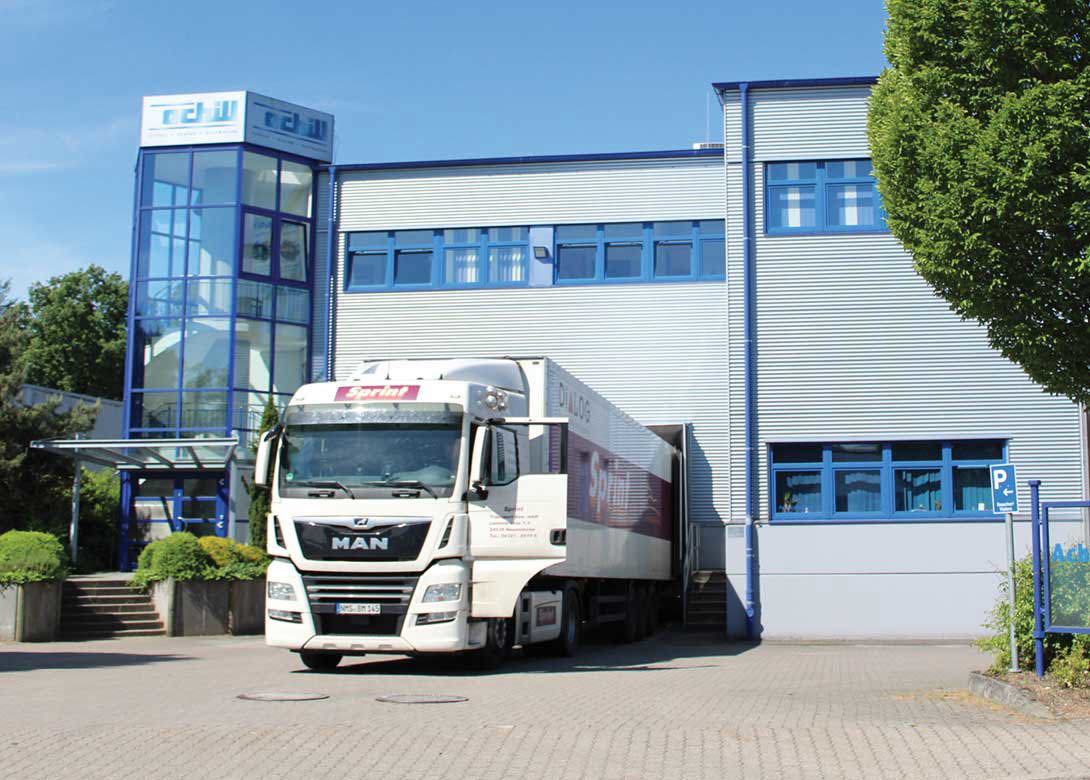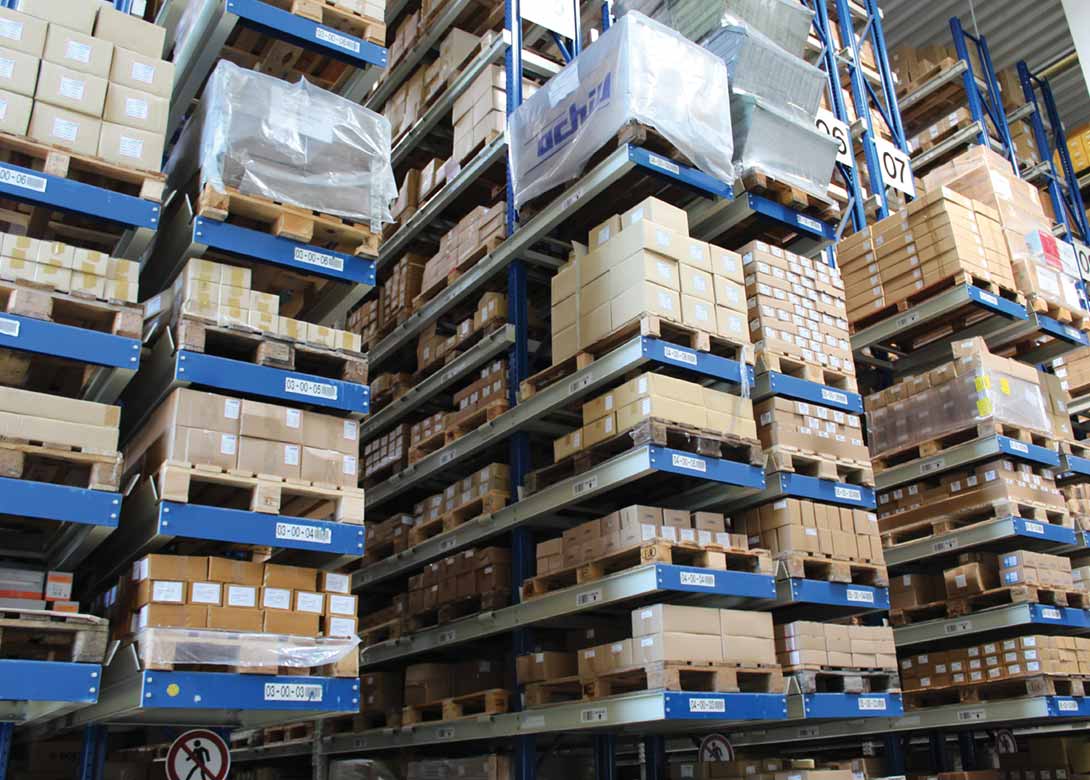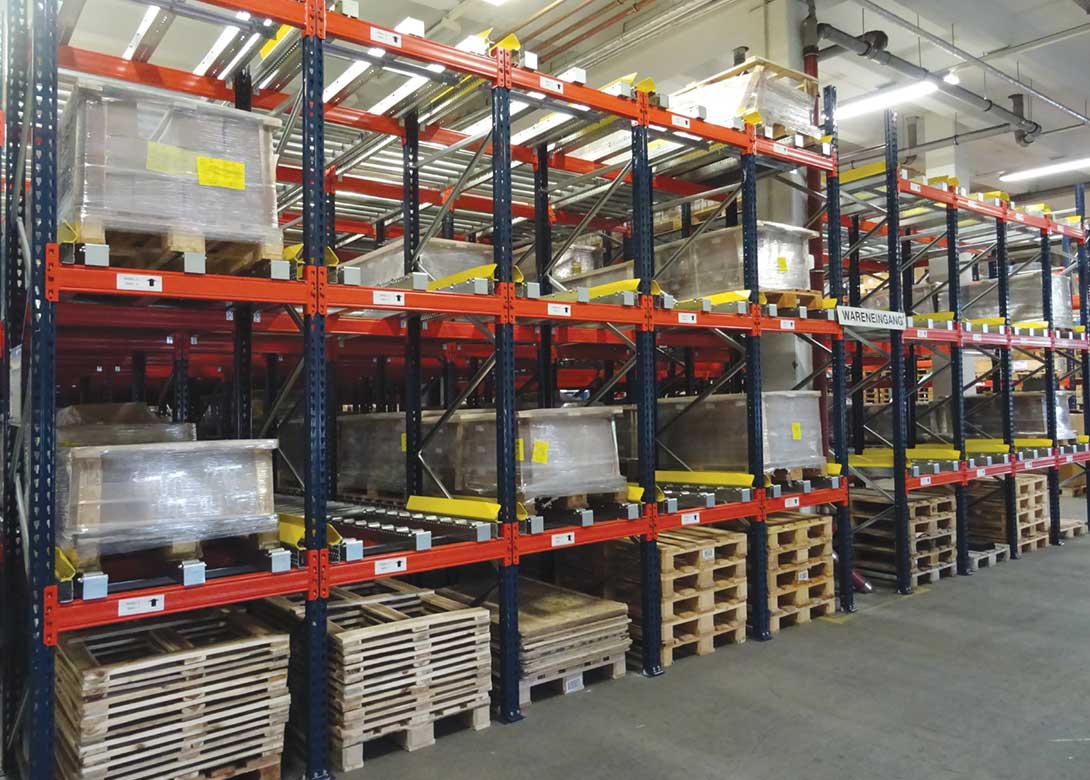

Despite the outbreak of Covid-19, German distributor Achilles is going ahead with its plans for investment and growth, including the addition of a new warehouse that will increase its stock capacity by 50%.
Timo Scholle, managing director at Achilles Seibert GmbH, explains: “We had already received government approval for the new warehouse and we were planning on ‘breaking ground’ in the first half of 2020 – just as the pandemic hit Europe. With such a global impact, we took a step back and looked at the pros and cons of the situation and have decided to still go ahead with the build – just at a slower rate.”
Achilles has been planning to extend its warehouse for a number of years, but every time the company started to go ahead with it there was a bump in the market. “Whether it was anti-dumping, the financial crisis, economy crisis, or something else impacting the market, there was always something that made us put the decision on hold,” points out Timo. “However, we then kept finding that once everything had recovered, we were in the same situation and lacked the necessary space for stock.”
Timo adds: “Customers are continuously demanding more products in stock, so we have been using a German forwarding company to store our additional stock. We therefore decided that even with Covid-19, we are still going to build the warehouse because we need it for our future development.”
The new extension will enable Achilles to increase its stock capacity by a further 50%. In addition to the new warehouse, Achilles has also introduced a new racking system for incoming and outgoing goods – further increasing its volume of stored goods. “The new system means we can handle another 300 pallets, which will help us improve our efficiency and make processes easier,” mentions Timo. “The system uses sliding racks, which means you can stack multiple pallets in the same location and if you move the front pallet the pallets behind all move forward. Plus, you can put the pallets in on one side and take them out the other side. This means that when unloading containers, the operators can stack them straight onto the racks rather than driving around the warehouse.”
Reacting to Covid-19
Throughout the pandemic Achilles has remained open, with the company making a quick decision to split each office department, so there was somebody working from home and somebody within the office. The company has also introduced safe working distances within the warehouse. “Home working is ok, but I don’t think it is the best solution for our type of industry,” explains Timo. “Working in the office is a lot easier as you are able to talk and resolve issues quicker. That is why we decided to split the departments within the office, so we had a mixture of the two. Obviously, home working is not possible in the warehouse, so we have introduced safe working distances so our employees are kept safe.”
Timo continues: “In Germany we have managed to handle the Covid-19 situation relatively well, so we have not been impacted as much as some countries. However, one thing we did learn is how to react quickly with emergency plans. Every company has these plans, but it is very rare you use them. With the outbreak we have now experienced what could happen and how we should react to the situation. This makes me confident that if there are any ‘second spikes’ we would be in a better position to respond.”
The start of the pandemic did actually lead to an increase in sales for Achilles. “It was a similar situation to what happened within supermarkets,” explains Timo. “Customers were worried about a lack of supply – even though we spoke to them and confirmed we had plenty of stock available. This resulted in March being a very good month for us as a business. However, this then led to April being a hard month as customers already had the stock they needed. Orders have improved since then but are still below pre-Covid levels.”
An Achilles service that has proved popular during lockdown is its webshop, where customers are able to access stock information, prices and submit orders. “We have definitely noticed over the last two months that customers are focusing more on key business tasks – such as checking stock, checking the price and making the order,” mentions Timo. “This led to customers focusing more on the webshop, as they can get quick access to price lists and stock levels and can then order what they need.”
Timo continues: “I think for the remainder of 2020 a lot of companies will be living day-to-day and seeing what decisions governments make and how the market recovers from the situation. However, I hope by the end of 2020 the markets will have started to return to some sense of normality.”

Quicker, closer supply
Timo also believes that one of the long-term impacts of the pandemic could be companies taking a step back from ‘just in time’ services and looking for alternative support structures. “The pandemic has underlined that globalisation and ‘just in time’ are really locked in together and if one thing struggles it impacts everything. This could lead to a push for companies to have manufacturers closer to them or distributors, like us, who become more of a focus. Instead of ‘just in time’, producer companies might prefer to have a stockholder closer to them who can help when something unexpected happens around the world and impacts the supply chain – whether it is a pandemic, a natural disaster, political, etc.”
“Currently companies try to lower their stock to as low as possible to keep the cash flow. I think these times are over, and solely relying on ‘just in time’ may not warrant the risk. That is why as a company we are looking to keep more stock, so we can offer solutions and provide quick supply. We will not be able to replace the imports from Asia, but we are our customers safety nets when it comes to products and maybe the safest option for everybody is to make the net a little bigger.”
However, being a distributor is not just about supplying fasteners. “The role of the distributor has changed totally over the last 5 – 10 years. Customers now require a whole host of certifications, quality checks, documentation, and other services, to go alongside the supply of fasteners,” explains Timo. “Customers go way deeper, they don’t just want a screw or bolt, they want a certified product with the relevant information, as well as the service around it. They also want everything as quickly as possible. That is why we are always looking to develop our processes and speed, so we can provide answers and products.”
Timo adds: “I think over the last 2 – 3 years customers have started to appreciate and understand the role distributors play and I think with the impact of Covid-19 customers will become even more aware of the added services we can provide.”
Future growth
For future growth Achilles will focus on digitisation and how the company can further connect with customers. “Our customers are growing in their digitisation, which means we must follow them,” states Timo. “Customers don’t want to move paper around anymore. You need to be connected with your customer, and supplier, everything has to be online in ‘real time’. We want to become an integrated part of their supply chain and be more connected with our customers in the future.”
Achilles will also look to develop its range and depth of stock, so it can further meet customers’ needs. “In our product range we have a good quality product, we have a good price, but it doesn’t make sense for customers to buy just one product from us,” concludes Timo. “Customers don’t want to have multiple suppliers; they want one distributor that can provide the full service. That is why we are going ahead with our investment and looking to double the existing DIN/ISO products we have by the end of the year/beginning of next year – making it as easy as possible for customers to work with us.”


Will joined Fastener + Fixing Magazine in 2007 and over the last 15 years has experienced every facet of the fastener sector - interviewing key figures within the industry and visiting leading companies and exhibitions around the globe.
Will manages the content strategy across all platforms and is the guardian for the high editorial standards that the Magazine is renowned.
Don't have an account? Sign Up
Signing up to Fastener + Fixing Magazine enables you to manage your account details.